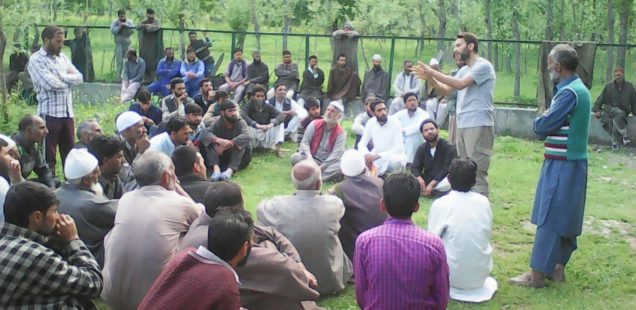
Indigenous youth organizing for sustainable livelihoods in the forested foothills of Himalaya (Indian-administered Kashmir)
The Pir Panjal range is a group of mountains in the Lesser Himalaya. The forested foothills of the Pir Panjal, in Indian-administered Kashmir, are inhabited by indigenous communities and rich in natural resources, which increasingly attract outside exploiters. This initiative involves the communities of Hirpora and Mujpathri, in whose territory some charismatic Himalayan flora and fauna (e.g., the brown bear and musk deer), spectacular landscapes, lush forests and the picturesque hamlets of local pastoralists combine to create a strong potential for ecotourism. This initiative is designed to take advantage of that potential for local livelihoods and to alleviate poverty by providing access to specific training and social security opportunities to the local youth.
The proponent of this initiative – Dr. Shaikh Ghulam Rasool — will visit the two communities and facilitate numerous meetings to discuss issues of conservation of nature and local sustainable livelihoods and related threats and opportunities. All meetings will take place in observance with the COVID rules, i.e., everyone will weak a mask, people will be kept at physical distance, hand sanitizing will be made available and the meetings will take place in the open air, or in well-aerated environments. Specific training will be offered to local young people willing to work in ‘adventure tourism activities’ in the Pir Panjal range and/or to revive traditional art and craft and food-processing techniques. Broader issues of community access to education, health services, vocational training, communication, and economic opportunities will be discussed. Importantly, the meetings will actively engage all participants and encompass self-governance and participatory democracy themes. While covering issues of nature conservation and forest protection, the communities will be informed about the Forest Rights Act and environmental policies in general and supported to identify their own ‘territories of life’ and develop the bylaws they wish to be applied there. Presenting the bylaws to government officials will provide an occasion to discuss issues of community-based conservation in Hirpora and Mujpathri territories and ask for an appropriate support to local ecotourism and sustainable community livelihoods.
The initiative will take place throughout 2021, benefitting from mutual knowledge and trust built up between Dr Shaikh and the communities through extensive frequentation in past years. It is expected that a group of approximately 40 young women from Hirpora and Mujpathri will chose to be trained in traditional embroidery and chain-stitch handicrafts (sozni shawls and chain-stitch crewel) and that 40 young men from the same villages will wish to become certified nature guides and promote community-based eco-tourism. The handicraft products are indigenous to Kashmir and very appreciated in India as well as worldwide. They have a secure market, and the trainers will be local women. It is envisioned that groups of local young women will be registered with the local handicraft departments and groups of certified nature guides will similarly organise themselves. The individual and collective registration of the business units of the youth of Hirpora and Mujpathri will provide them with access to loans and medical insurance benefits. The small business units are also expected to revitalise mutual solidarity and a sense of unity with the unique territories of the villages.

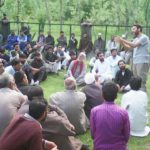
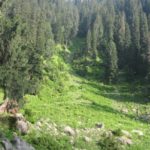
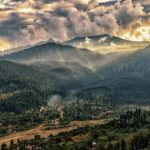

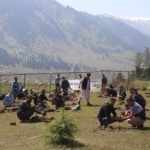

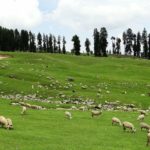



[…] la Fondation est triste et consterné d’apprendre qu’un projet approuvé en 2020 (décrit ici) a été de facto entravé par le gouvernement indien, qui a demandé à la banque concernée de […]